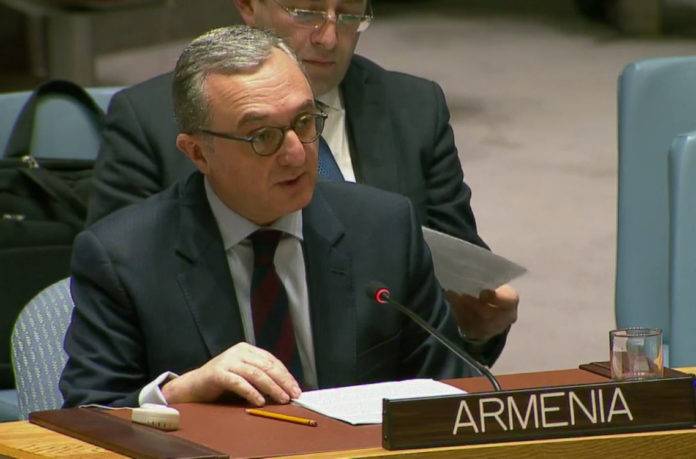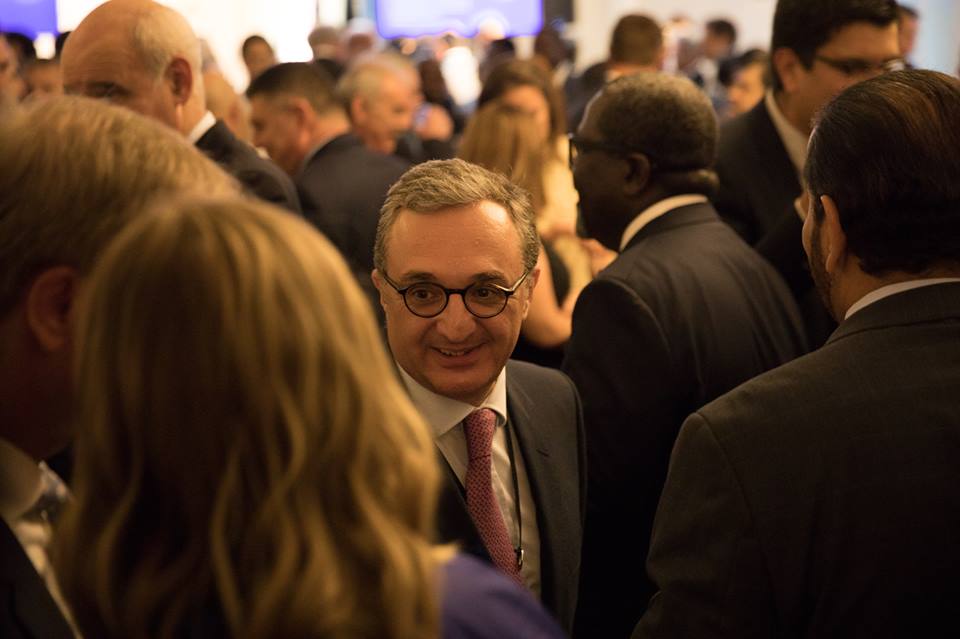By Taleen Babayan
Special to the Mirror-Spectator
NEW YORK — The current Permanent Representative of Armenia to the United Nations, Ambassador Zohrab Mnatsakanyan, has served the Armenian government at home and abroad for the past three decades. Armed with rich diplomatic experience, he possesses a strong set of principles and vast knowledge of many national and international issues.
Erudite and forward thinking, Mnatsakanyan has elevated the image of Armenia in the global arena and advanced the interests of his country during his four-year tenure at the United Nations.
In an exclusive interview, Taleen Babayan met with Mnatsakanyan at the Armenian Mission in New York City to discuss recent issues, including the complex issue of Artsakh and modality of its peaceful resolution, the annulment of the Armenia-Turkey Protocols, as well as U.S.-Armenia relations.
Taleen Babayan: Let’s start with the most recent developments regarding Armenia-Turkey relations. Yesterday [March 1, 2018] Yerevan scrapped a peace agreement it signed with Turkey on October 10, 2009 to normalize relations between the two countries. This agreement understandably was hammered under heavy pressure by then US Secretary of State Hillary Clinton. From day one, it didn’t produce any positive outcome. Why was the annulment decision taken at this specific point in time?











